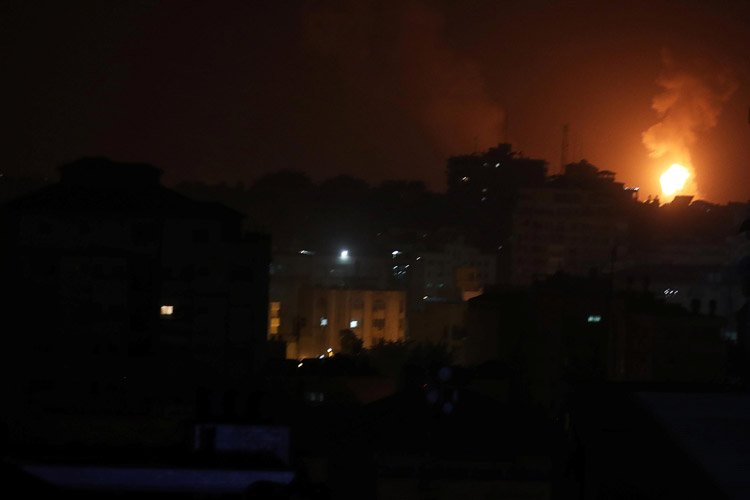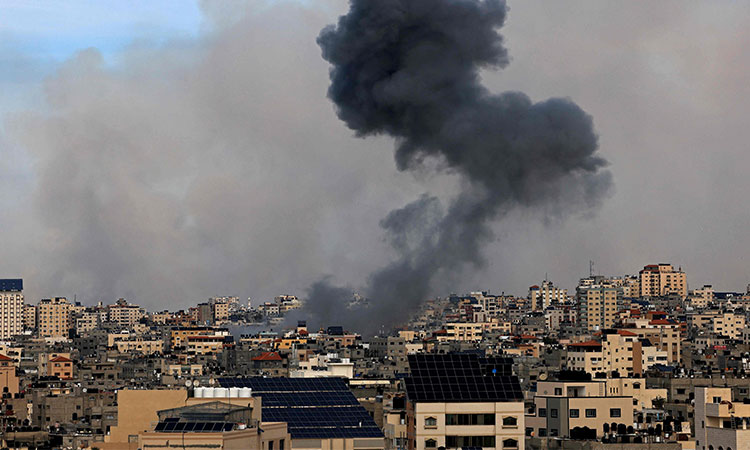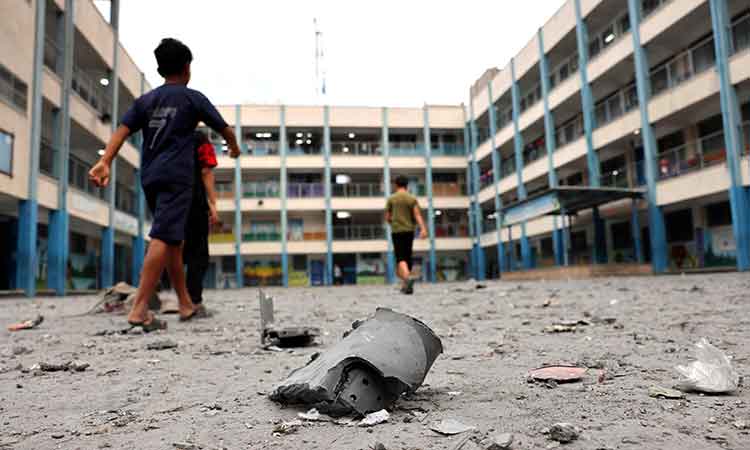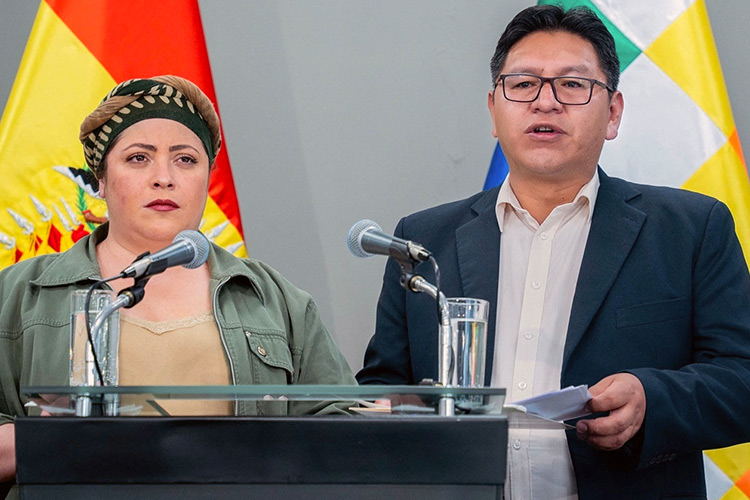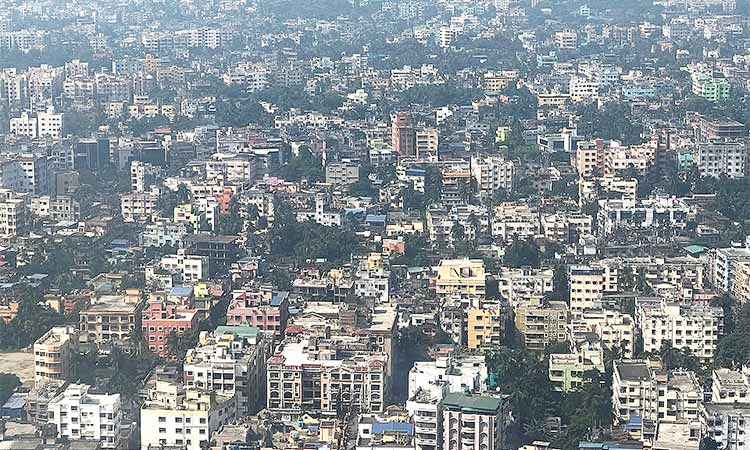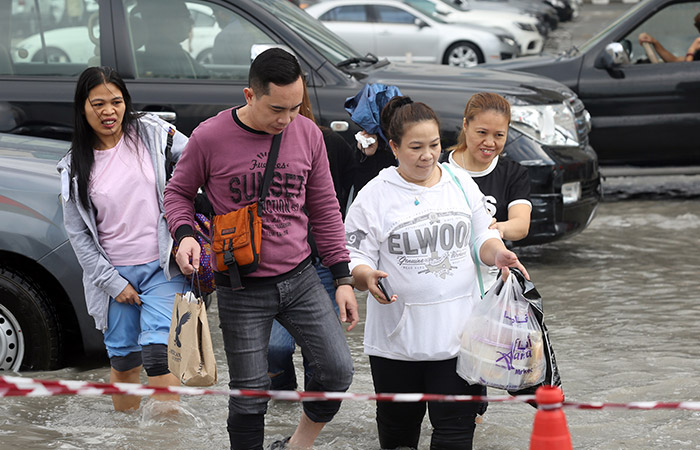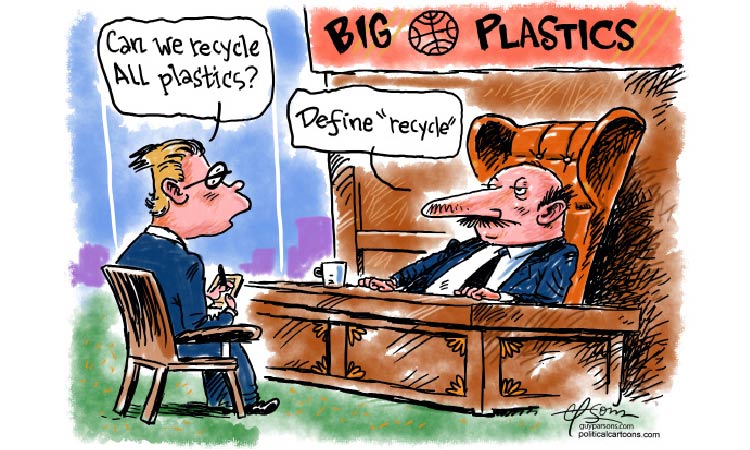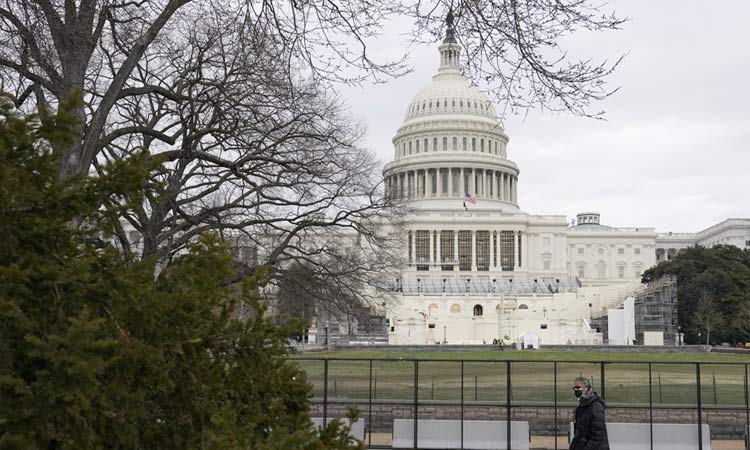Gaza escalation will bruise peace process
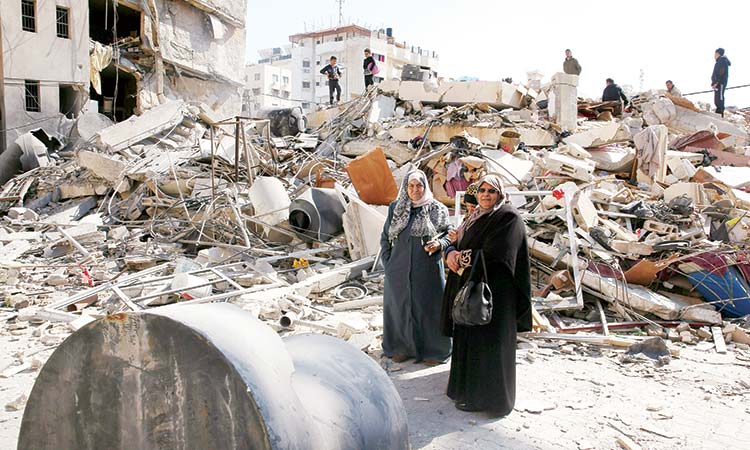
Palestinians inspect their damaged properties.
Among the Palestinians killed by the Israeli strikes were a pregnant woman and her 14-month-old niece, which is a clear indication that Israeli aggression knows no limits.
The escalation has come just ahead of the Holy month of Ramadan, when explosions shook Gaza City, where busy streets were packed with shoppers carrying out their preparations for the Holy Month.
Some 2 million Palestinians live in Gaza, whose economy has suffered against the backdrop of shortages of basic goods and services linked to the more than decade-long air, sea and land blockade by Israel.
In the ongoing cycle of violence lasting over a year, close to 200 Palestinians have been killed, including over 40 children. More than 1,300 have been injured, many of them seriously.
Israel and the United States are putting a financial squeeze on the Palestinian Authority (PA), where opposition to a long-awaited US peace plan and anger over Israeli sanctions remain strong.
The steep cuts in US aid to the Palestinians over the past year are largely viewed as an attempt to draw them towards a blueprint that Washington promises will have economic benefits but which the PA predicts will fall short of endorsing Palestinian statehood.
During Israeli Prime Minister Benjamin Netanyahu’s re-election campaign, his hardline right-wing government imposed sanctions that have pushed the PA towards financial crisis.
In February, Israel announced it would cut by 5 per cent the approximately $190 million in tax revenues it transfers to the Palestinian Authority each month from imports that reach the occupied West Bank and Hamas-run Gaza Strip via Israeli ports.
The Palestinians were dealt another heavy blow by the Trump administration’s cut last year of hundreds of millions of dollars of aid.
In February, the US Agency for International Development announced it had ceased all assistance to the West Bank and Gaza.
Just last week, the United Arab Emirates, in its capacity as the Chair of the Group of Member States of the Organisation of Islamic Cooperation, OIC, urged the international community to take united, practical measures to save the prospects for peace and the two-state solution during the quarterly Open Debate on the Situation in the Middle East, including the Question of Palestine at the UN Security Council.
Speaking on behalf of the Group, Ambassador Lana Zaki Nusseibeh, UAE’s Permanent Representative to the United Nations in New York, underscored the organisation’s commitment to an outcome that sees the establishment of an independent Palestinian state based on the borders of 4th June, 1967, and with East Jerusalem as its capital, in accordance with relevant UN resolutions, the Arab Peace Initiative, and the Madrid terms of reference.
“What is clear is that the situation on the ground in the Palestinian territories is fragile and cannot be neglected any longer,” Ambassador Nusseibeh had emphasised.
The United Nations Special Coordinator for the Middle East Peace Process, Nickolay Mladenov, has correctly stated that continuing down the current path of escalation will quickly undo what has been achieved and destroy the chances for long term solutions to the crisis.
This endless cycle of violence must end and efforts must accelerate to realise a political solution to the crisis in Gaza.
